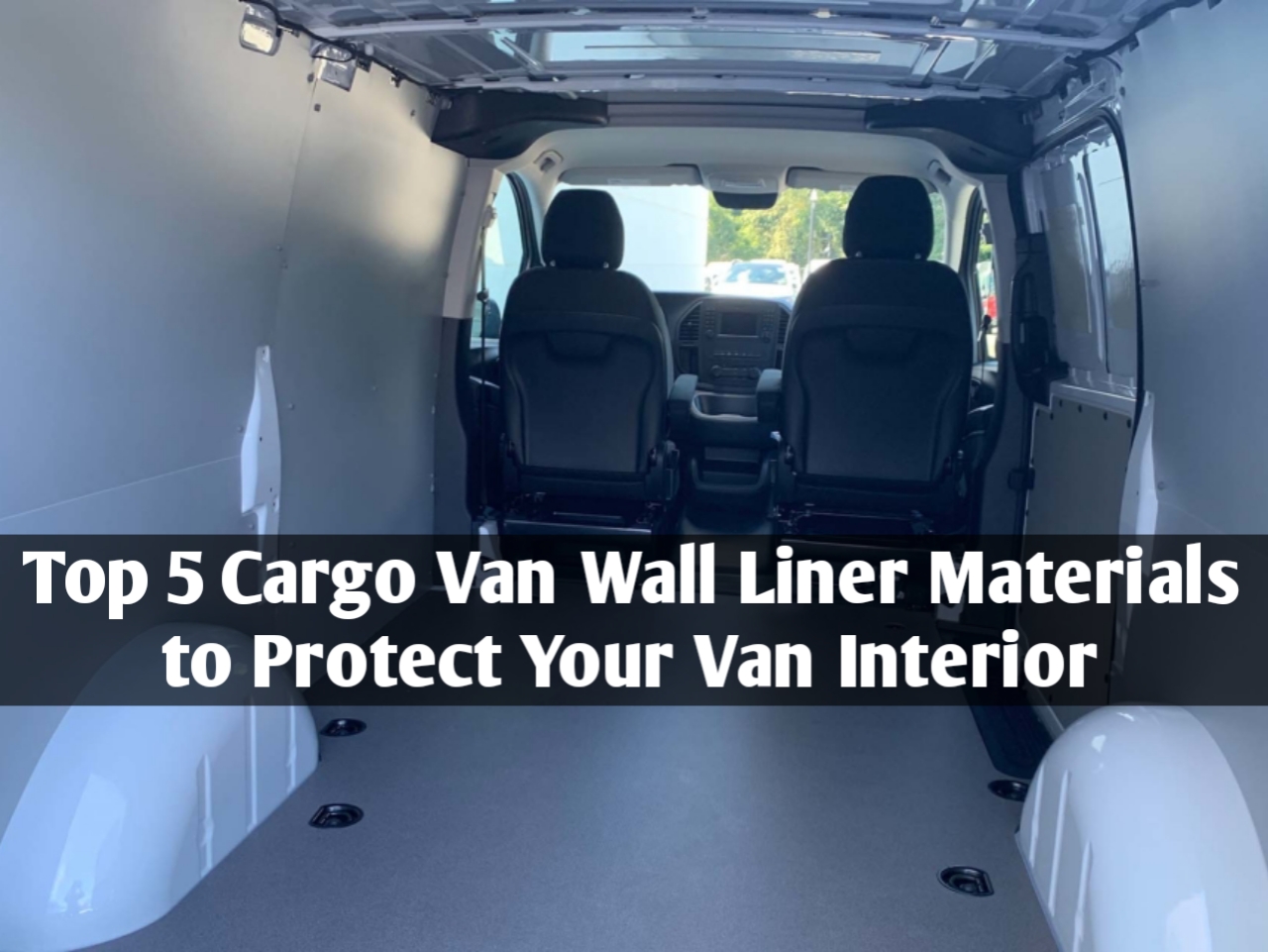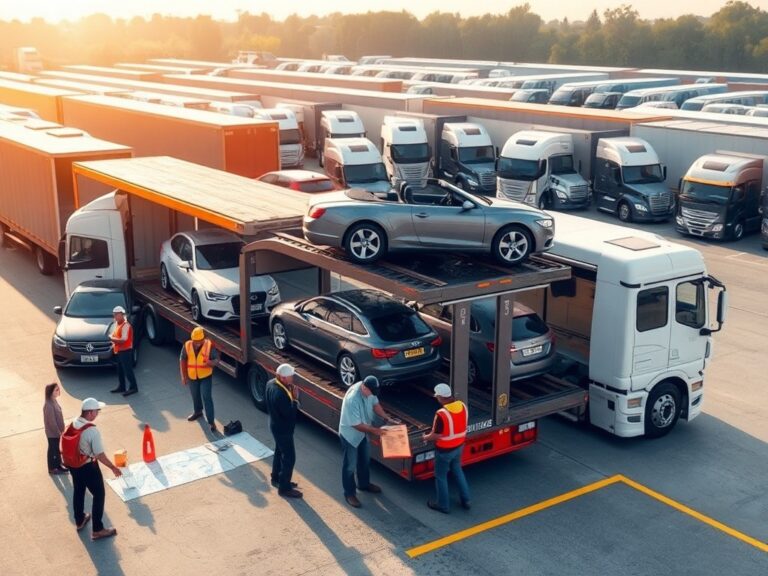Top 5 Cargo Van Wall Liner Materials to Protect Your Van Interior
Cargo vans are versatile vehicles widely used for transporting goods, equipment, and materials. Whether you’re a small business owner, a tradesperson, or a delivery driver, protecting the interior of your cargo van is crucial for maintaining its longevity and resale value. One of the most effective ways to safeguard your van’s interior is by installing a wall liner. Wall liners provide protection against dings, dents, and abrasions caused by moving cargo, as well as insulation from noise and temperature changes. In this article, we’ll explore the top five cargo van wall liner materials available, helping you make an informed decision to keep your van in optimal condition.
What Is a Cargo Van Wall Liner?
A cargo van wall liner is a protective layer installed on the interior walls of a van. This liner acts as a barrier between the van’s cargo area and the external wall panels, shielding the metal surfaces from damage caused by shifting cargo. Wall liners are available in various materials, each offering different levels of protection, insulation, and durability. By installing a wall liner, van owners can enhance the overall lifespan of their vehicle while also improving its aesthetics and functionality.
Wall liners not only provide protection against physical damage, but they also help to reduce road noise, regulate internal temperatures, and prevent moisture build-up that can lead to rust and corrosion. When choosing a cargo van wall liner material, it’s important to consider factors such as durability, ease of installation, weight, and cost.
Why You Need a Cargo Van Wall Liner
Before diving into the top five materials, it’s essential to understand why a wall liner is necessary for your cargo van. Without a wall liner, the constant movement of goods can cause serious damage to the van’s walls. Even light cargo can leave scratches and dents, while heavier loads can cause more severe damage. Over time, this can lead to expensive repairs and devaluation of the van. In addition to protecting against physical damage, wall liners can also enhance the thermal insulation of the van, keeping the interior cooler in the summer and warmer in the winter.
Noise reduction is another important benefit of wall liners. Cargo vans often amplify road noise, making long drives uncomfortable. Wall liners help dampen this noise, providing a quieter and more pleasant driving experience. Furthermore, if you’re transporting fragile or sensitive goods, the added cushioning provided by a wall liner can help prevent damage to the items you’re carrying.
1. Plywood Wall Liner
Durability and Versatility at an Affordable Price
Plywood is one of the most common materials used for cargo van wall liners due to its durability and cost-effectiveness. Plywood wall liners are typically made from marine-grade or high-density plywood, which is treated to resist moisture and prevent warping. Plywood panels are cut to fit the walls of the van and can be installed easily with screws or adhesive.
One of the major advantages of plywood wall liners is their versatility. Plywood can be customized to fit the exact dimensions of your van and can be cut around windows, doors, and other obstructions. Additionally, plywood provides a solid surface that can be used to mount shelves, hooks, or other storage solutions, making it ideal for tradespeople who need to organize tools and equipment.
In terms of durability, plywood holds up well against heavy impacts, making it suitable for transporting heavy or sharp objects. However, plywood is not the best option for those seeking thermal or noise insulation, as it offers minimal protection in these areas. While it is treated to resist moisture, prolonged exposure to water can still cause warping or rot over time.
Pros:
- Affordable and widely available
- Durable and impact-resistant
- Customizable and easy to mount accessories
Cons:
- Minimal thermal and noise insulation
- Susceptible to moisture damage over time
2. Plastic Panels
Lightweight and Easy to Maintain
Plastic panels are another popular choice for cargo van wall liners, especially for those looking for a lightweight and easy-to-maintain solution. These panels are typically made from high-density polyethylene (HDPE) or similar durable plastics, which are resistant to impact, moisture, and chemicals. Plastic wall liners are available in various thicknesses and textures, offering different levels of protection based on your needs.
One of the standout features of plastic wall liners is their resistance to moisture. Unlike plywood, plastic will not absorb water or rot, making it an excellent choice for those who frequently transport liquids or work in damp environments. Plastic panels are also incredibly easy to clean, as they can be wiped down or hosed off with minimal effort.
Another advantage of plastic wall liners is their weight. Plastic is significantly lighter than plywood, which can help improve your van’s fuel efficiency by reducing the overall weight. While plastic wall liners are durable and impact-resistant, they may not offer the same level of protection as heavier materials like plywood or composite panels, particularly for extremely heavy or sharp cargo.
Pros:
- Lightweight and easy to install
- Resistant to moisture and chemicals
- Easy to clean and maintain
Cons:
- Less impact resistance compared to heavier materials
- Limited thermal and noise insulation
3. Aluminum Panels
Superior Strength and Longevity
For those seeking maximum durability, aluminum panels are an excellent option for cargo van wall liners. Aluminum is a strong, lightweight metal that provides superior protection against impacts, dents, and abrasions. It is also highly resistant to corrosion, making it ideal for environments where the van may be exposed to moisture or harsh chemicals.
Aluminum panels are available in various thicknesses, allowing you to choose the level of protection that suits your needs. Thicker panels offer more impact resistance, while thinner panels can help keep the weight of the van down. Aluminum panels are also highly customizable and can be cut to fit any van model.
In terms of aesthetics, aluminum provides a sleek and professional appearance. It can be polished or coated for additional protection and to enhance the van’s interior design. While aluminum offers excellent durability, it can be more expensive than other wall liner materials. Additionally, it does not provide much in the way of thermal insulation, though it can help reduce some noise due to its solid structure.
Pros:
- Highly durable and impact-resistant
- Corrosion-resistant and long-lasting
- Sleek, professional appearance
Cons:
- More expensive than other materials
- Limited thermal and noise insulation
4. Fiberglass Reinforced Plastic (FRP)
Lightweight, Durable, and Easy to Clean
Fiberglass Reinforced Plastic (FRP) is a composite material made from a combination of plastic and fiberglass. This material offers a balance of durability, lightweight construction, and ease of maintenance. FRP panels are resistant to moisture, chemicals, and impact, making them a popular choice for cargo van wall liners in industries such as food delivery, medical transport, and other applications where hygiene is a priority.
FRP panels are smooth and easy to clean, making them ideal for environments where spills or dirt are common. The fiberglass reinforcement provides added strength, allowing the panels to withstand impacts from heavy or sharp cargo. FRP panels are also resistant to mold and mildew, making them a good choice for damp or humid conditions.
While FRP offers many advantages, it can be more expensive than other plastic wall liners, and its installation may require professional help due to its rigidity. Additionally, while FRP provides some noise reduction, it may not offer the same level of thermal insulation as other materials.
Pros:
- Lightweight and easy to maintain
- Resistant to moisture, chemicals, and mold
- Strong and impact-resistant
Cons:
- Higher cost compared to basic plastic panels
- Limited thermal insulation
5. Rubber Wall Liner
Impact Absorption and Noise Reduction
Rubber wall liners are an excellent choice for those who prioritize impact absorption and noise reduction. Rubber is a flexible, durable material that can withstand heavy impacts, making it ideal for transporting fragile or sensitive cargo. Additionally, rubber’s natural sound-dampening properties help reduce road noise, creating a quieter driving experience.
Rubber wall liners are typically available in roll form, allowing them to be easily cut and fitted to the contours of your van’s interior. They are also highly resistant to water and chemicals, making them suitable for wet or harsh environments. Rubber liners can provide some level of thermal insulation, although they may not be as effective as other specialized insulation materials.
While rubber offers excellent protection against impacts and noise, it can be more expensive than other liner materials. Additionally, rubber wall liners tend to be heavier, which can affect fuel efficiency if used throughout the van.
Pros:
- Excellent impact absorption and noise reduction
- Resistant to moisture and chemicals
- Easy to install and customize
Cons:
- Heavier than other materials
- Can be more expensive
Conclusion: Choosing the Best Cargo Van Wall Liner Material
When it comes to protecting your cargo van’s interior, choosing the right wall liner material is essential. Each material offers different benefits depending on your specific needs, whether it’s impact resistance, moisture protection, noise reduction, or ease of maintenance.
- Plywood is a cost-effective and versatile option for those looking for durability and customization.
- Plastic panels offer lightweight, moisture-resistant protection, ideal for easy cleaning and maintenance.
- Aluminum provides superior strength and a sleek, professional appearance, though at a higher cost.
- FRP balances durability, cleanliness, and moisture resistance, making it ideal for hygiene-sensitive industries.
- Rubber excels in impact absorption and noise reduction, perfect for those transporting fragile items or seeking a quieter driving experience.
By considering factors such as durability, insulation, weight, and cost, you can select the ideal wall liner material to keep your cargo van in top condition for years to come.
Read Also Our This Post: Transform Your Space with Stunning 3D Art Wall Decor

Kamran Khatri is a versatile writer and editor at ExpressZone.co.uk, bringing fresh perspectives and insightful commentary across a wide range of topics. With a passion for exploring diverse subjects—from technology, business, and finance to lifestyle, travel, and the arts—Kamran aims to inform, inspire, and engage readers through well-researched articles and thought-provoking content.
His work spans multiple categories including health, education, pets, entertainment, real estate, and sustainability, reflecting his commitment to delivering knowledge that connects with everyday life. Whether breaking down the latest trends, sharing practical tips, or highlighting cultural insights, Kamran’s writing combines clarity with creativity.
When he’s not crafting stories for ExpressZone.co.uk, Kamran enjoys keeping up with global developments, exploring innovative ideas, and connecting with readers who share his curiosity about the world.







